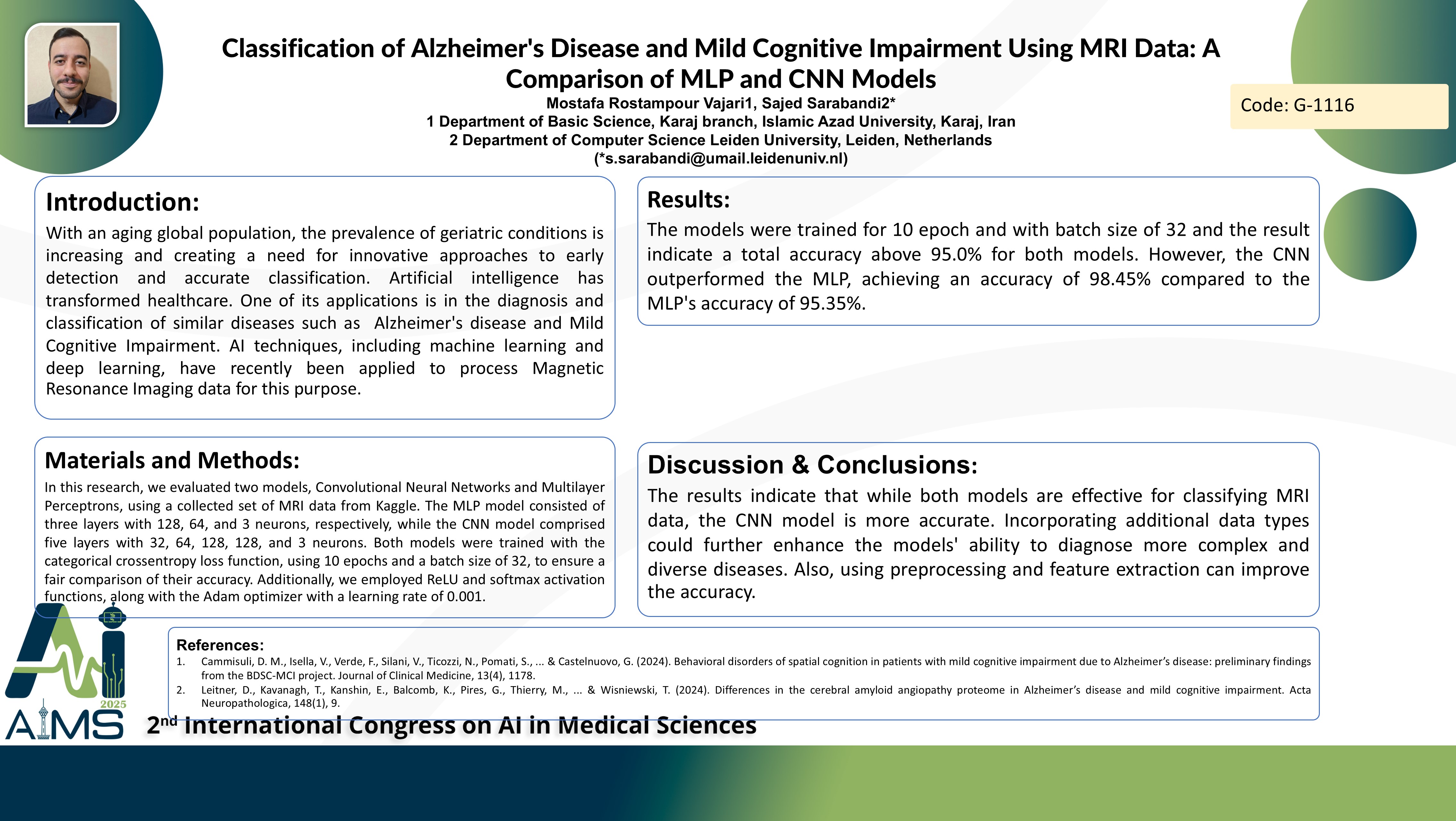مقایسه ی مدل های CNN و MLP برای تشخیص بیماری آلزایمر و اختلال شناختی خفیف با استفاده از داده های MRI
کد: G-1116
نویسندگان: Mostafa Rostampour Vajari ℗, Sajed Sarabandi *
زمان بندی: زمان بندی نشده!
برچسب: پردازش سیگنال های پزشکی
دانلود: دانلود پوستر
خلاصه مقاله:
خلاصه مقاله
Background and aims: With an aging global population, the prevalence of geriatric conditions is increasing and creating a need for innovative approaches to early detection and accurate classification. Artificial intelligence has transformed healthcare. One of its applications is in the diagnosis and classification of similar diseases such as Alzheimer's disease and Mild Cognitive Impairment. AI techniques, including machine learning and deep learning, have recently been applied to process Magnetic Resonance Imaging data for this purpose. Method: In this research, we evaluated two models, Convolutional Neural Networks and Multilayer Perceptrons, using a collected set of MRI data from Kaggle. The MLP model consisted of three layers with 128, 64, and 3 neurons, respectively, while the CNN model comprised five layers with 32, 64, 128, 128, and 3 neurons. Both models were trained with the categorical crossentropy loss function, using 10 epochs and a batch size of 32, to ensure a fair comparison of their accuracy. Additionally, we employed ReLU and softmax activation functions, along with the Adam optimizer with a learning rate of 0.001. Results: We train the models for 10 epoch and with batch size of 32 and the result indicate a total accuracy above 95.0% for both models. However, the CNN outperformed the MLP, achieving an accuracy of 98.45% compared to the MLP's accuracy of 95.35%. Conclusion: The results indicate that while both models are effective for classifying MRI data, the CNN model is more accurate. Incorporating additional data types could further enhance the models' ability to diagnose more complex and diverse diseases. Also, using preprocessing and feature extraction can improve the accuracy.
کلمات کلیدی
AI, CNN, MLP, Alzheimer, MCI, MRI
